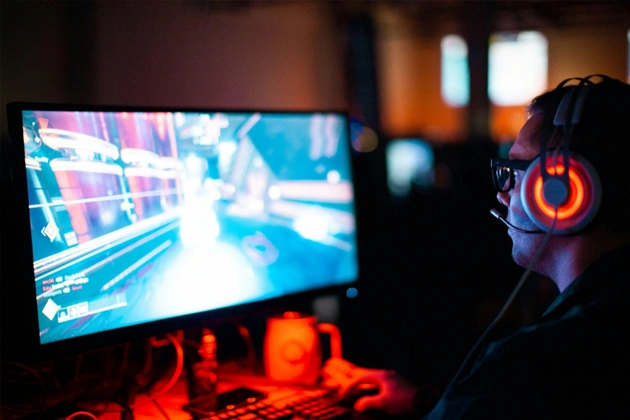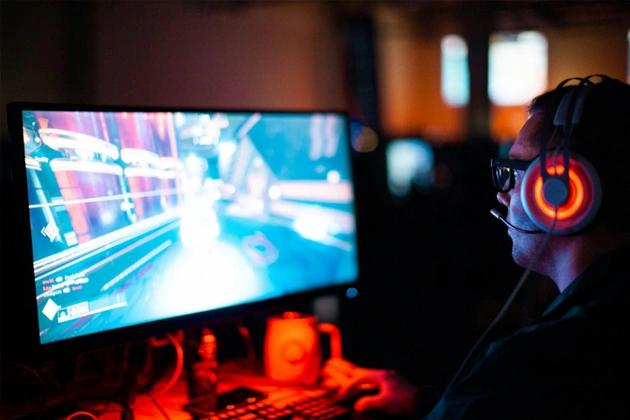At the heart of both video games and betting lies a shared language: probability. Whether you’re opening a loot box in your favorite online game or placing a wager on your preferred esports team, odds play a central role in shaping decisions, outcomes, and experiences. Today, players and bettors alike increasingly turn to online tools like the bet calculator odds checker to better understand probabilities and maximize their chances of success.
Far from being a niche concept, probability and odds are deeply woven into game design and player psychology. Understanding how developers use probability—and how players respond to it—reveals a fascinating intersection between gaming, entertainment, and betting that continues to grow as these worlds overlap more than ever before.
The Role of Probability in Game Mechanics
Many of today’s most popular video games incorporate probability-based mechanics that drive excitement and player engagement. Random number generation (RNG) systems control everything from loot drops and item crafting to critical hits and encounter rates. Developers rely on these systems to create variety, replayability, and a sense of anticipation.
Take gacha-style mobile games, for example. The thrill of pulling a rare character or item hinges on the chance of success, often displayed as clear percentages. Players are fully aware that they may have a 1% or 5% chance of acquiring a top-tier unit, but that uncertainty is exactly what keeps them engaged. Similarly, RPGs often feature probability-driven combat mechanics where hits, misses, and critical strikes depend on calculated odds.
These mechanics mirror principles found in betting: understanding risk, managing expectations, and optimizing decisions based on known probabilities.
Why Players Are Drawn to Chance-Based Systems
The appeal of randomness isn’t accidental. Game designers intentionally use probability to tap into basic human psychology. The concept of variable ratio reinforcement—where rewards are delivered unpredictably—has been shown to produce higher engagement than predictable reward systems.
This unpredictability triggers dopamine responses, making both gaming and betting inherently exciting. Players become motivated to keep playing, not knowing exactly when the next big win or rare item will arrive. The same principle applies when placing bets: even with careful odds analysis, the outcome remains uncertain, keeping participants engaged and emotionally invested.
Learning to Manage Risk: A Shared Skillset
While luck is always a factor, both gamers and bettors can improve their outcomes by mastering probability and managing risk. Competitive players in games like Hearthstone, Magic: The Gathering Arena, or Pokémon TCG Online often think in terms of odds when deciding which play gives them the highest chance of victory. Similarly, responsible bettors carefully analyze odds, often using tools like bet calculator odds checker, to evaluate potential returns and make informed wagers.
In both gaming and betting, risk management involves:
- Calculating expected value (EV)
- Assessing probabilities of different outcomes
- Deciding when to play conservatively or take risks
- Avoiding emotional decision-making (tilt)
These shared skills highlight how probability literacy benefits players across different forms of entertainment.
Esports: Where Gaming and Betting Converge
The rapid growth of esports has created new spaces where gaming and betting directly intersect. Competitive matches in games like League of Legends, CS:GO, and Dota 2 are now featured on major betting platforms, allowing fans to engage with their favorite teams on a whole new level.
Betting markets for esports are becoming increasingly sophisticated, offering wagers on match outcomes, map wins, kill counts, and even in-game objectives. This mirrors the complexity of traditional sports betting, while adding the fast-paced, unpredictable nature of competitive gaming.
Far from being a negative force, responsible esports betting can enhance engagement, deepen knowledge of the game, and create stronger fan communities. Many fans use betting as an extension of their passion for esports, applying their understanding of team strategies, player performance, and game meta to make well-informed wagers.
The Positive Side of Betting in the Gaming Ecosystem
While betting has historically carried some stigma, it’s important to recognize the positive role it plays when approached responsibly. Much like gaming itself, betting appeals to the human desire for challenge, analysis, and reward. With the right safeguards in place, it becomes another form of interactive entertainment that complements gaming culture.
Responsible betting:
- Encourages research and analysis
- Rewards knowledge and expertise
- Adds an extra layer of excitement to competitions
- Supports the growth of esports ecosystems through sponsorships and partnerships
The key, as with any form of gaming or wagering, lies in moderation, education, and the promotion of safe practices.
How Developers Leverage Probability for Game Balance
Beyond player psychology, probability serves a practical role in game balance. Developers use odds to control progression pacing, maintain challenge, and ensure fairness. For example:
- Loot drop rates can be adjusted to prevent power creep.
- Critical hit chances can be fine-tuned to reward skill while maintaining unpredictability.
- Encounter probabilities can ensure variety without overwhelming randomness.
Many live-service games also introduce pity systems, where the odds of receiving rare items increase after multiple failed attempts. This blending of probability with player-friendly mechanics helps sustain engagement while reducing frustration.
The Rise of In-Game Betting Mechanics
Interestingly, some games now incorporate betting mechanics directly into gameplay. Titles like Gwent or certain casino-inspired minigames allow players to wager in-game currency or resources based on calculated risks.
These systems provide valuable practice in probability management without real-world financial stakes, offering entertainment while reinforcing risk assessment skills. Players learn to evaluate odds, assess expected value, and make informed decisions—skills that translate well to both gaming and betting environments.
The Growing Acceptance of Betting in Modern Entertainment
According to the American Gaming Association, legal betting markets are rapidly expanding across both traditional sports and esports, contributing to economic growth and creating new entertainment avenues for fans. As regulations evolve and responsible practices are prioritized, betting is increasingly recognized as a legitimate and enjoyable part of the broader gaming ecosystem.
The Importance of Transparency and Education
As probability and betting mechanics become more integrated into gaming, transparency is essential. Players should always have access to clear information about odds—whether it’s the chance of pulling a rare card, hitting a critical strike, or winning a wager.
Educational resources, such as probability calculators, strategy guides, and community discussions, empower players to make better-informed decisions and avoid misconceptions about chance and skill. By fostering probability literacy, both the gaming and betting industries can promote healthier engagement and long-term sustainability.
Probability lies at the core of both game design and player experience, influencing everything from loot drops to esports betting markets. Far from being opposing forces, gaming and betting share common ground in their reliance on odds, strategy, and risk management.
As players embrace tools like the bet calculator odds checker to better understand probability in betting, many are also applying these same principles to optimize their performance in games. Whether calculating the odds of drawing a rare card or analyzing match outcomes in esports, probability skills enhance both entertainment and mastery.
With responsible practices, transparency, and education, the blending of gaming and betting offers exciting opportunities for players to engage more deeply with the games and communities they love—proving that understanding the odds isn’t just for bettors, but for anyone who wants to level up their game.











